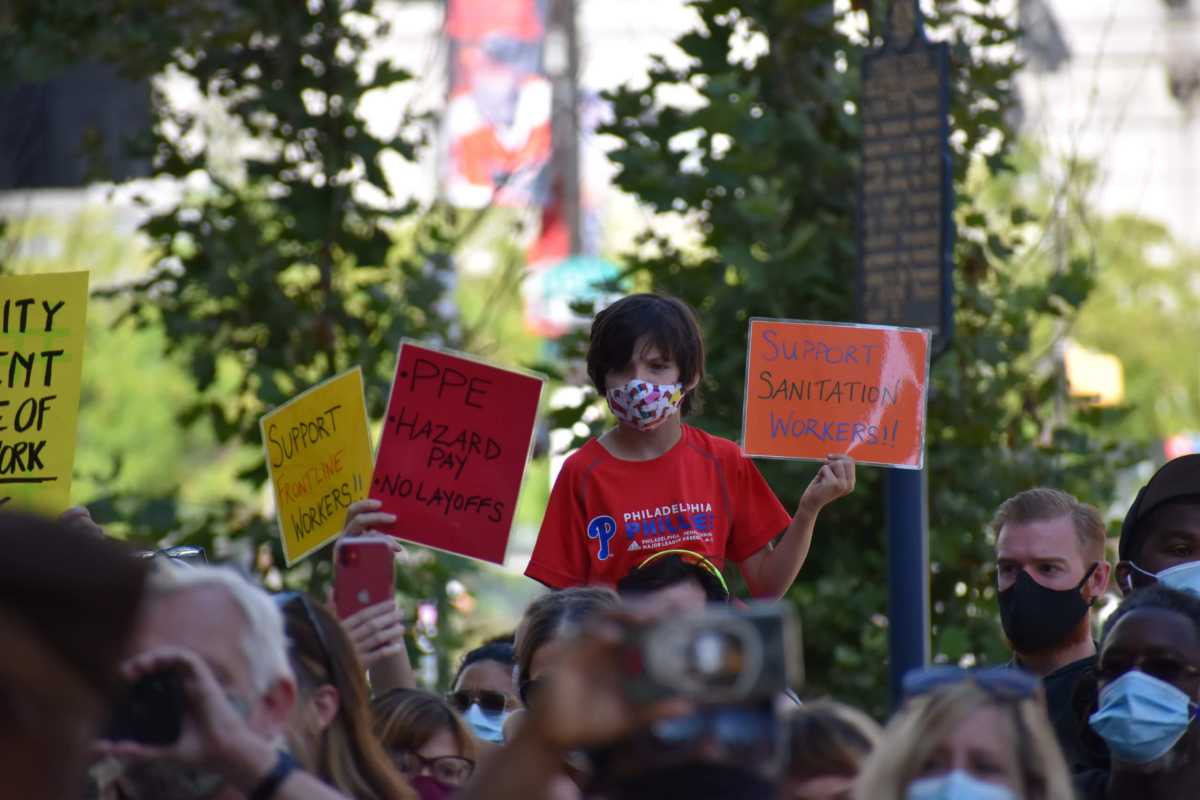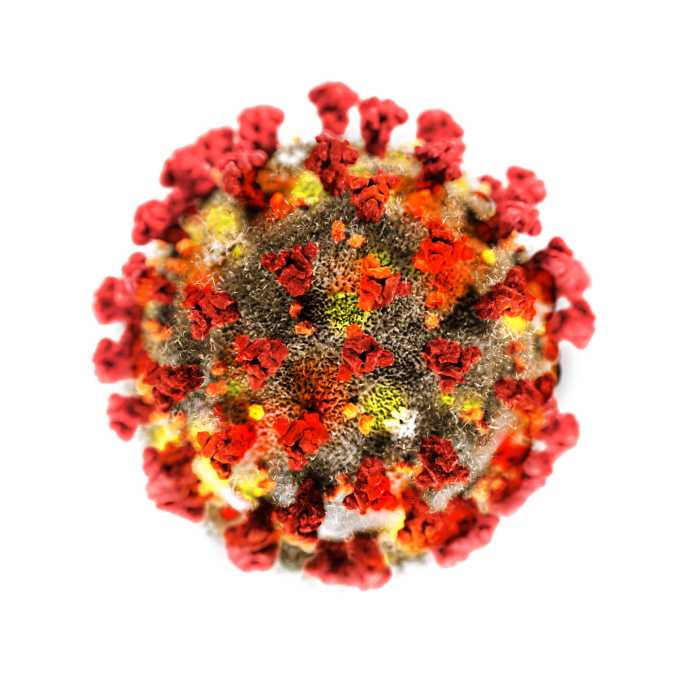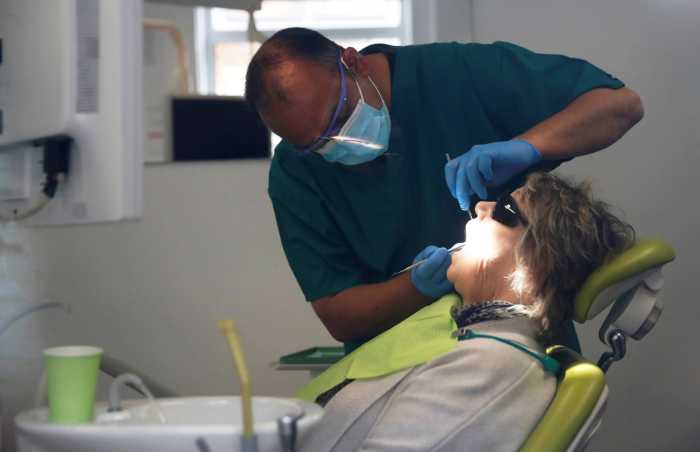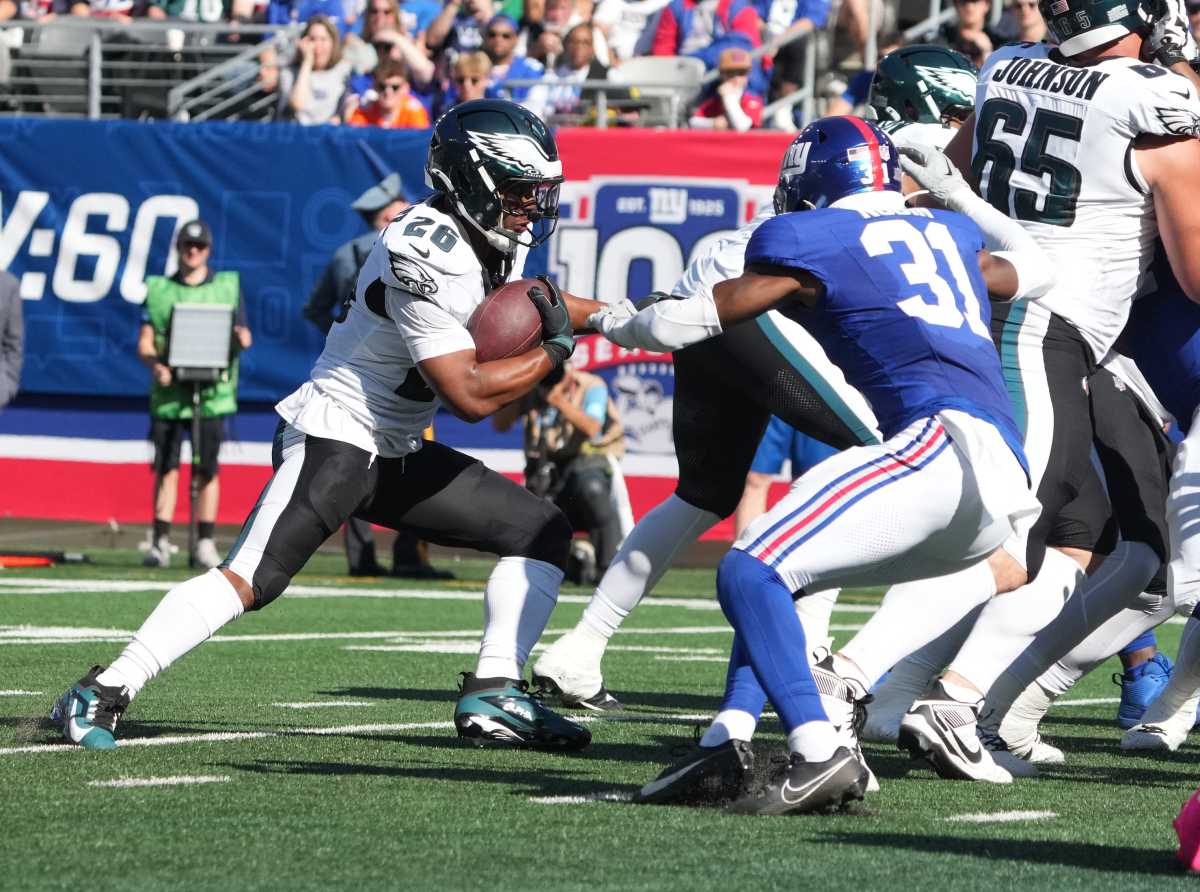Union members and leaders gathered on Labor Day in front of City Hall to demand protection and hazard pay for essential workers.
Most were from public sector unions, and many showed up with signs supporting sanitation workers. At one point, a trash truck turning onto Broad Street honked in approval.
“When I saw that the city had canceled all parades, I said to myself, ‘Something as serious as labor can never be canceled,’” said Omar Salaam, business agent for AFSCME District Council 33 Local 427, which represents trash collectors.
Staff shortages due to the novel coronavirus pandemic, stormy weather and increased tonnage, a result of people spending more time at home, has led to highly-publicized delays in trash pick-up.
In response, Mayor Jim Kenney’s administration committed to hiring 125 temporary collectors, many, if not all, of which have now hit the streets.
Salaam characterized the measure as “union busting,” and said the city should have reassigned some of the hundreds of municipal workers who were laid off this summer or hired new, permanent sanitation workers.
“It’s something the city was actually trying to do prior to COVID; they’re just using this as somewhat of a conduit to push temporary workers,” Salaam told Metro.
Salaam said it’s a cost-cutting measure. The temporary employees aren’t receiving health benefits through the city.
City officials said that, once conditions return to normal, only full-time, permanent trash collectors will be used. The city will attempt to hire as many of the temporary laborers as possible into permanent roles, a spokesperson said.
“The hiring of these workers is in no way ‘union busting,’” a Streets Department spokesperson said in an email. “They were onboarded to address a critical, time-sensitive need for a six month period.”
This week, trash pick-up is expected to be one day behind due to Labor Day, which is standard procedure for holidays. Collection was on time last week, officials said.
Sanitation workers have been organizing all summer, calling on the city to provide better personal protective equipment and hazard pay, typically calculated as ‘time-and-a-half.’
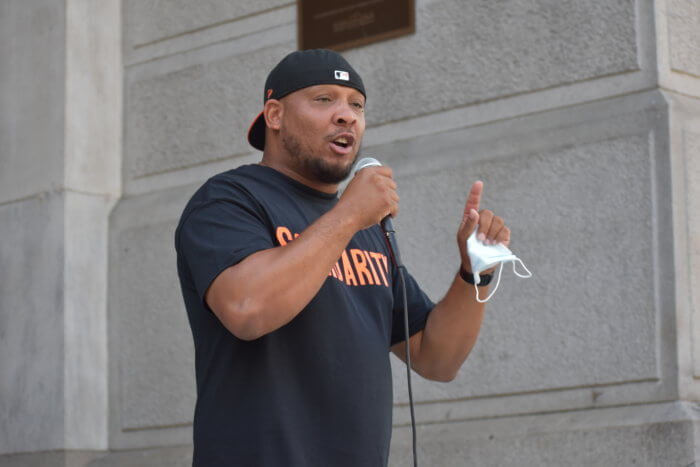
Salaam said the PPE situation has improved, thanks to donations and efforts by the union and collectors themselves to acquire masks and other safety equipment.
A Streets Department spokesperson told Metro that a multitude of supplies, including full-body hazmat jumpsuits, reinforced cloth masks and hand sanitizer, are “in abundant supply” for any sanitation worker who needs it.
Hazard pay won’t become available to frontline municipal workers unless it’s backed by state or federal dollars, city officials said.
A key theme of Monday’s rally was that unions should unite and stand for safety precautions for all workers during the COVID-19 pandemic.
Max Avener, who uses they/them pronouns, of the Temple Association of University Professionals’ rank and file caucus, said a dean told them she was under pressure to hold in-person classes so students would have to return to campus and pay housing fees.
“It’s crystal clear that Temple’s decision was not about prioritizing learning or about prioritizing students,” Avener, a math instructor, said. “It was about prioritizing money.”
Last week, Temple decided to suspend all in-person classes after a coronavirus outbreak among its student body intensified. As of Sunday, 350 people connected with the school have tested positive.
Ray Betzner, a university spokesman, told Metro that Temple’s decision to reopen its campus was based on a student survey conducted over the summer.
“Our students told us loud and clear that they wanted to come back to campus, to be together again,” he said in an email.
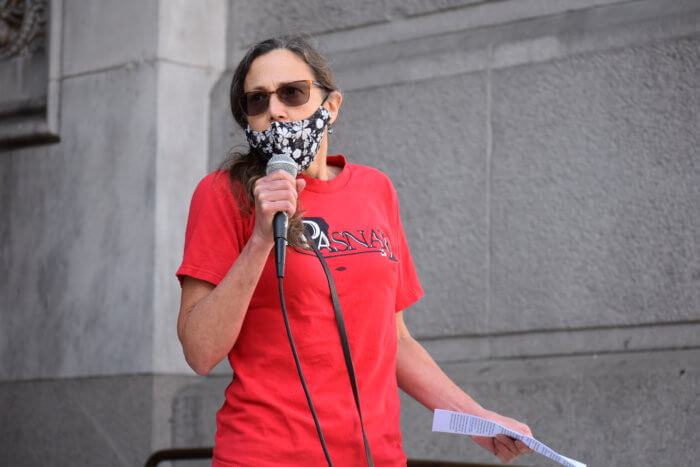
Marty Harrison, a nurse at Temple University Hospital, said medical workers, especially early in the pandemic, had to fight to get PPE. She’s a member of the Pennsylvania Association of Staff Nurses and Allied Professionals.
“There was one night, in particular, where a donation of N95 masks from the carpenters’ union literally saved our lives at Temple and Jeanes (Hospital),” Harrison told the crowd at the rally. “We couldn’t have done it without you.”
“But getting what we needed to do our jobs to keep ourselves and our patients safe was a constant battle with our employers, and it shouldn’t have been,” she added. “They wanted to call us heroes, but what they really meant was martyrs.”



